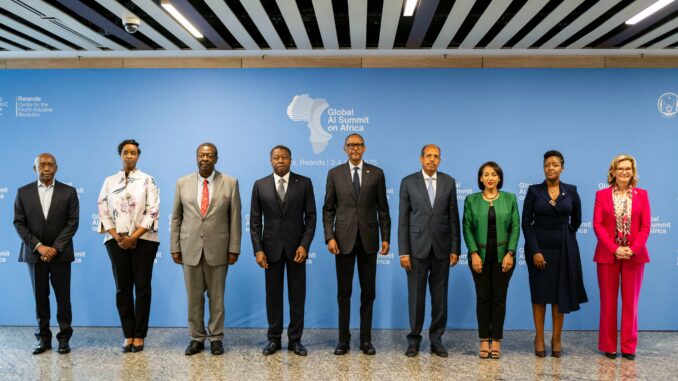
At the opening of the inaugural Global AI Summit on Africa in Kigali, Rwanda, on Thursday, April 3, African leaders and technology experts emphasized the importance of fostering innovation, enhancing digital connectivity, and ensuring equitable access to artificial intelligence (AI).
Rwandan President Paul Kagame, in his keynote address, spotlighted the immense potential Africa holds for AI-driven development, urging African nations to actively engage with AI to address challenges like inequality and economic disparity. He stressed the need for a robust infrastructure to support AI growth and called for collective action to ensure that AI benefits all citizens, not just the elite.
Togolese President Faure Gnassingbe reinforced the notion that AI’s promise should be accessible to all, cautioning against a future where technological advancements primarily benefit urban and educated populations. He highlighted the risk of exacerbating existing inequalities, particularly in rural areas, where access to technology is limited. Gnassingbe stressed the importance of focusing on sectors such as health, education, and agriculture, where AI can be a transformative tool for broader societal progress.
Rwanda’s Minister of Information and Communications Technology, Paula Ingabire, also weighed in on the importance of balancing innovation with regulation. She underscored Rwanda’s commitment to developing ethical AI policies that prioritize fairness and reduce biases in AI systems. The summit, under the theme “AI and Africa’s Demographic Dividend: Reimagining Economic Opportunities for Africa’s Workforce,” aims to position Africa as a key player in the global AI landscape, bringing together over 1,000 participants from more than 90 countries to collaborate on AI research, investment, and growth opportunities.
